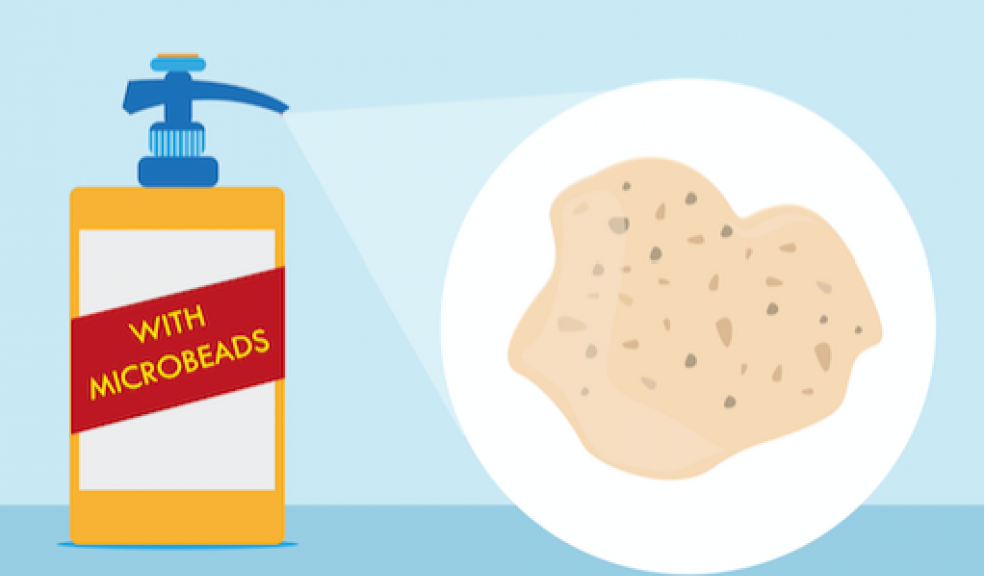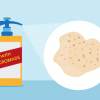
Government plan to ban microbeads
Environment Secretary Andrea Leadsom has announced plans to ban the sale and manufacture of cosmetics and personal care products containing tiny pieces of plastic, commonly known as ‘microbeads’.
Each year billions of tiny beads end up in our seas from a range of products such as face scrubs, toothpastes and shower gels. These beads build up in the marine environment and can be swallowed by sea life, including fish and crustaceans.
The ban follows the successful introduction of the 5p plastic bag charge – which has led to six billion fewer bags issued this year – and is the next step in Government action to tackle plastic in our oceans.
A consultation will launch later this year with the intention to ban the sale and manufacture of cosmetics and personal care products containing microbeads that harm the marine environment.
At the same time, evidence will be gathered on the extent of the environmental impacts of microbeads found elsewhere, such as in household and industrial cleaning products, before considering what more can be done in future to tackle other plastics, for example microfibers, which enter the marine environment.
Andrea Leadsom said: "Most people would be dismayed to know the face scrub or toothpaste they use was causing irreversible damage to the environment, with billions of indigestible plastic pieces poisoning sea creatures.
"Adding plastic to products like face washes and body scrubs is wholly unnecessary when harmless alternatives can be used.
"This is the next step in tackling microplastics in our seas following the success of the 5p plastic bag charge, and I look forward to working with industry and environmental groups.
"This Government is committed to its promise to be the first generation ever to leave the environment in a better state than it inherited, and together we can bring an end to these harmful plastics clogging up our oceans."
Twenty-five UK cosmetics and toiletries companies, such as Unilever, have already taken steps to voluntarily phase out microbeads from their products. Waitrose has announced they will stop stocking such products by the end of September.
Government action will create a level playing field for industry, tackle inconsistency and stop new products containing tiny pieces of plastic from being sold in the UK.
Manufacturers are exploring natural alternatives, including nut shells, salt and sugar, which have the same exfoliating properties but do not pose a threat to the environment.
The Government will consult industry, environmental groups and other relevant parties to establish how and when a ban could be introduced, aiming to change legislation by next year.
Tamara Galloway, Professor of Ecotoxicology at the University of Exeter, is one of the UK’s leading experts in marine pollution and her team studies the health effects of microplastics pollution.
She said: “This is a fantastic example of the Government responding swiftly to the overwhelming scientific evidence that microbeads are bad for the marine environment.
“We find tiny pieces of plastic in every sample of seawater we study from around the world. Microbeads in cosmetics are one example. They don’t biodegrade and instead accumulate in the oceans where they are mistaken for food by many marine animals.
“A ban on their use in cosmetics is a very welcome step towards tackling marine pollution. It has also made all of us think more about the massive amounts of plastic litter we discard into the environment every day.
“Our research has shown that many marine animals ingest microbeads, mistaking them for food. They can become lodged in the animal’s gut, and prevent them from eating nutritious food. They can also pass chemicals into the animal’s tissues. When these animals are eaten, the microplastics and the chemicals they contain can be passed through the food chain too.
“It has been estimated that an average plate of oysters could contain up to 50 plastic particles. We don’t yet have any evidence for the harm that this might cause, but most people would probably prefer not to be eating plastic in their food.
“Pollution from microbeads is a truly global problem. Tides and currents can carry pollution across oceans to countries a long distance from where they were originally released. Ideally, any legislation to control them should be on an international level.
“The proposed UK ban is a very welcome step in the right direction. The best way to reduce marine pollution and protect marine animals from harm is to stop throwing things into the ocean in the first place.”

















